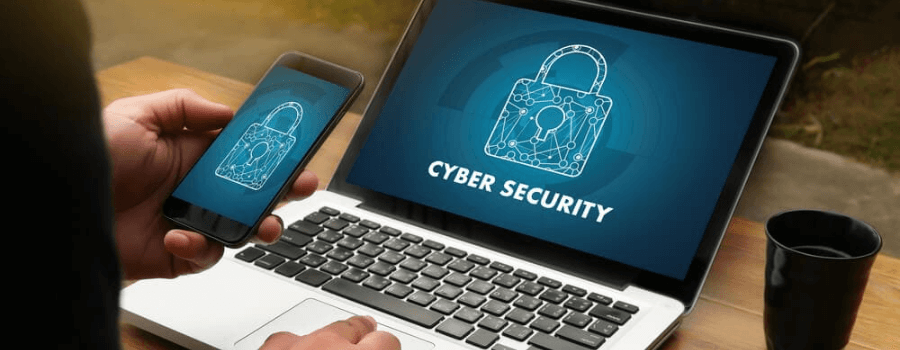19-05-2022 |
The functioning of the Banking, Financial Services, and Insurance (BFSI) industry in India has changed quite a lot in the recent few years. There are two primary reasons behind this transformation – first, the demonetisation of 2016 and the second, the COVID-19 pandemic. Both these events have led to the rapid digitalisation of the BFSI sector in India.
While demonetisation forced people to shun their cash transactions and depend more on digital banking services, the COVID-19 pandemic fuelled this trend even more as the people were forced to stay in their homes. From banking services to paying utility bills and life insurance premiums, people started using digital platforms for various requirements related to the BFSI sector.
However, while this rapid digitalisation has brought positive transformation to the BFSI sector, it has also created several challenges at the same time. One of the threats that the digital BFSI ecosystem has to face is the threat of BFSI cyber security. Even a single instance of cyber fraud can lead to Lakh of people losing their hard-earned money.
Cyber Threat: How Big a Risk is it?
As technology continues to evolve, it’s not only making our daily-lives tasks easier and more convenient but also exposing us to the risks of cyber threats or cyber-attacks. Cyber-attacks involve the use of computers and computer networks to commit frauds or crimes. For example, stealing of private data, hacking, fishing, malware, ransomware, cross-site scripting, etc.
The BFSI industry has to deal with enormous volumes of financial transactions and storage. Additionally, the digital BFSI ecosystem involves the use of private data to access banking and other financial services. So, the breach of cybersecurity in the BFSI industry can prove to be very dangerous. Let’s discuss how:
Risks from mobile apps
With the advent of digitalisation, the use of Fintech mobile apps has become a rage. Almost all banking and insurance companies have also come up with smartphone apps to provide digital services to customers. However, whenever a customer opens these mobile apps, they face a cyber security threat.
These apps require a set of IDs and passwords to provide access to users. If a cybercriminal can hack this password, they can easily log into the users’ accounts and conduct financial transactions on their behalf.
Problems with third-party sites
We all use third-party sites and mobile applications for various purposes, such as shopping, booking travel tickets and hotel accommodations, paying utility bills, tuition, and school fees, etc. After events like demonetisation and the COVID-19 pandemic, the use of third-party payment apps has also increased exponentially.
However, this also increases the risk of cyber fraud. These fraudsters may pretend to be useful third-party sites and steal the sensitive private information of users. These may include their credit or debit card details, net banking passwords, etc. The act of stealing sensitive data by posing as someone else is known as phishing.
Threat to confidential data
The digitalisation of BFSI services has prompted service providers to store large amounts of confidential data of their customers. These include their name, address, PII, credit score, and other personal information. If any of this information falls into the wrong hands, it can cause trouble not only for customers but also for the service providers.
Professional hackers may use ransomware and malware attacks to hack the systems of BFSI service providers and steal sensitive customer data from them.
The Importance of Cyber Security

After knowing about the cyber threats in the BFSI industry, you must have got an idea of how important it is to beef up the BFSI cyber security. And since this industry forms the core of the Indian economy, cyber security must be given genuine attention. Let’s now discuss why cyber security in the BFSI industry is crucial:
Safeguards public money
This is the most crucial reason why BFSI sector cyber security is important. A single instance of a cyber-attack can lead to several customers losing their hard-earned money. Apart from this, they may have to go through tedious legal procedures to prevent any further harm.
It’s the duty of the service provider to look into their customers’ transactions and monitor everything closely. They need to take prompt actions if they notice any breach of cyber security.
Protect service provider’s reputation
The BFSI industry consists of service providers, such as banks, insurance companies, and Fintech companies. This is a highly competitive industry with a constant scuffle for market capture.
A single instance of a cyber-attack can cause severe damage to the reputation of these service providers. Non-adherence to cyber security protocols can cause loss of trust and insecurity among customers. All this can ultimately lead to the loss of business for the industry.
That is why banks and insurance companies should employ strong teams to monitor cyber threats, maintain necessary BFSI cyber security protocols, and take necessary actions in the case of a cyber-security breach.
Secures confidential data
We have already explained above how the loss of confidential data of customers can prove to be dangerous. Such instances can result in huge financial losses and privacy issues. They can also cause legal problems for banks as well as customers.
Banks and other BFSI service providers need to have robust cyber security systems that can effectively block attempts of data theft and phishing. It’s prudent to have multiple layers of cyber security if possible.
Cybersecurity is essential for your data, as a customer, you can buy a life insurance policy online from Tata AIA Life Insurance to protect your future. Tata AIA life insurance policy comes with several benefits, such as tax savings, options to add riders#, and options to choose from the lump-sum pay-out, regular income for a limited period or a combination of both.
Conclusion
By now, you must have understood how BFSI security plays a very crucial role in the BFSI sector in India. With the rapid digitalisation of this sector, it’s only essential that cyber security is given more serious attention. Both the Government and the service providers need to handle this responsibility equally.
L&C/Advt/2022/May/0965







 FOR EXISTING POLICY
FOR EXISTING POLICY 
 FOR NEW POLICY
FOR NEW POLICY 




